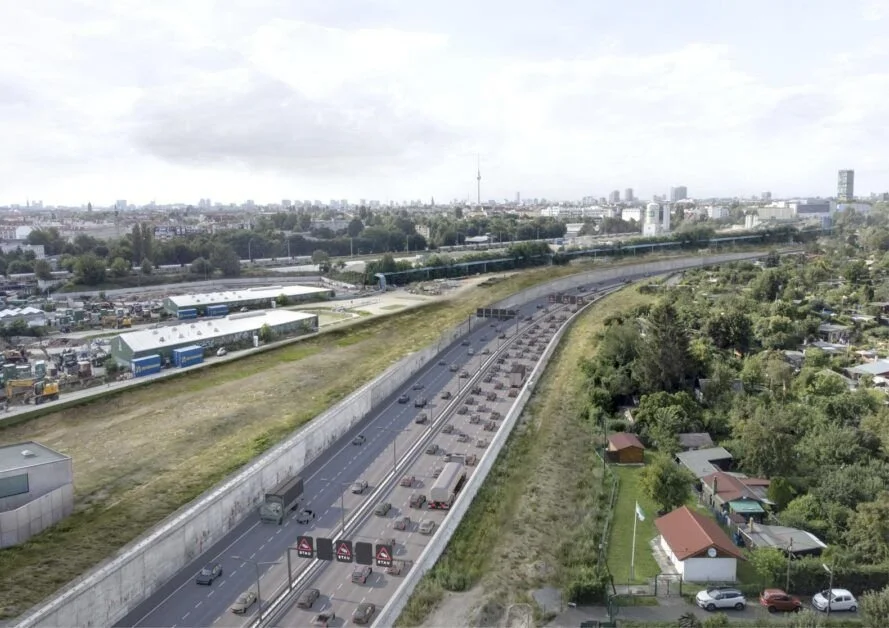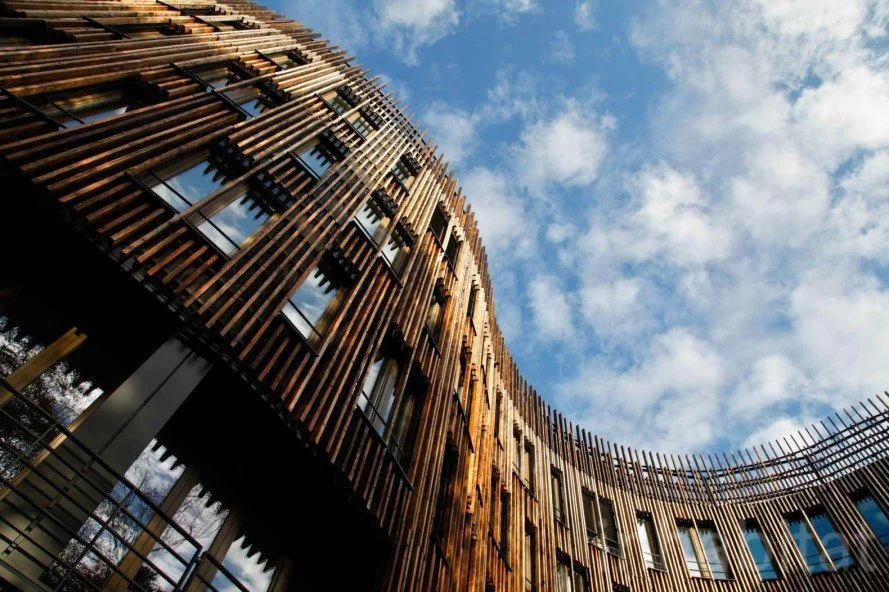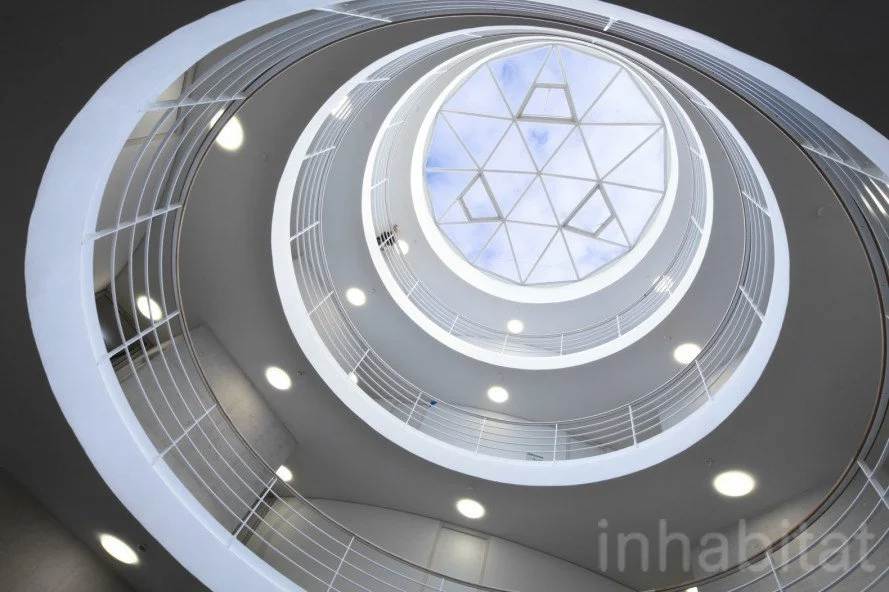Between 2013 and 2021 I wrote regularly for Inhabitat, a leading platform devoted to sustainable design, architecture, and environmental innovation. Leveraging storytelling, visual communication, and an acute understanding of design’s role in sustainability, my contributions included:
In-depth articles on sustainable design, covering topics such as off-grid, climate-positive housing development and passive, net-zero energy solutions. Morgenfarm’s proposal to turn the A100 Autobahn in Berlin into a vertical farm was a highlight.
Live social-media event coverage, sharing real-time insights from design and green technology gatherings such as London Design Week.
Feature pieces profiling regenerative architecture and renewable energy for instance, the Supercomputers that model climate change heat this Potsdam research institute
In addition to interviewing, writing and photographing I optimised the presentation of the articles for search engines and users using the Wordpress content management system.
Fragile Future III by Studio Drift an LED chandelier painstakingly constructed from dandelion seed heads asks the question “What is luxury?”
Morgenfarm proposes vertical farms to replace Berlin’s Autobahn
Costing 200,000 euros per meter to construct, the 3.2-kilometer (1.9-mile) extension of Berlin’s motorway ring road was always controversial. If completed, it would bring 130,000 cars per day to south and east Berlin by 2022. As the political will to act on the climate crisis builds, the extension is starting to look like an expensive and ugly mistake. Morgenfarm offers a utopian vision for Berlin’s infrastructure where toxic fumes are replaced by green space and healthy vegetables.
Berlin’s A100 motorway partially circles the inner city. It was constructed as part of a campaign in the 1960s to make Germany’s capital a ‘car friendly city.’ The southeastern extension from Sonnenallee and Treptower Park has been the target of several protests. Now, a new concept would turn the excavated path of the motorway into a vertical farm. The proposal hopes to inspire city dwellers with a vision of what’s possible when urban planners stop prioritizing cars.
Campaign leader Perttu Ratilainen is convinced that the ‘Autobahn’ belongs to a bygone era. “It feels like we are stuck in the 60s when you hear about new motorways being built, surely we have progressed since then?”
Developed by non-profit ‘Think and Do Tank’ Paper Planes e.V., this farm would save water and energy plus reduce the need for long haul transportation involved in conventional agriculture.
Major investments are being made in the emerging market of sustainable urban farming, particularly in Asia and the United States. Europe’s largest vertical farm, Nordic Harvest vertical farm in Denmark, was completed in 2021 with 14 stories of stacked edibles. It acts as a living feasibility study for vertical agriculture.
Vertical farms are buffered from external influences (sun, rain, heat or cold extremes), which means they can produce food all year round. Current vertical farms produce fruit, vegetables, edible mushrooms, algae and insects. These farms make more efficient use of resources than conventional industrial agriculture and do not require any pesticides. They provide a reliable supply of fresh and vitamin-rich food for the local city population, even in times of crisis such as the drought conditions Germany has experienced in recent years.
Another crisis this project could address is the housing shortage in Berlin. With the Autobahn repurposed as vertical farming space, the areas next to the road could be used to construct housing. With the upcoming German election, there has again been debate about building housing on Berlin’s most popular park, the repurposed airport Tempelhofer Feld, so freeing up land that roads make unusable could be a big plus for the capital city.
Fridays for Future has announced a strike in Germany on the Friday before the election. Thousands are expected on September 24th for a massive demonstration in Berlin, calling on politicians to rethink the system we live in and move faster towards the “Energiewende” and “Mobilitätswende,” the transition away from fossil fuels and motor vehicles to better public transport, cycle infrastructure, and renewable energy.
Rather than a concrete proposal, the Morgenfarm project encourages the space needed to rethink the urban environment. If the Berlin city administration truly wants to address climate change, then projects like this should be discussed.
What do you think about turning over roads to grow food? Would this approach allow more space for rewilding projects on the edge of the city? Do you have a vision about how Berlin should reconfigure this road-building project?
Images via Paper Planes eV
Supercomputers that model climate change heat this Potsdam research institute
Thanks to the vertically orientated wooden facade, people walking in the beautiful woodland setting of Telegraph Hill in Potsdam might not even notice a new 6000-square meter building has arisen amongst the tall trees. The curvaceous trefoil-shaped structure blends harmoniously into the leafy environment. A low impact design philosophy extends to the building mechanics: new methods and materials have been used for the insulation of the outer walls, and their efficiency will be assessed in a research project by the Technical University Dresden over the next three years
Potsdam Institute for Climate Impact Research, Climate Science, German green architecture, Sustainable building technology, waste heat recycling, supercomputers, green servers, climate science, Potsdam, Berlin architects, Berlin architecture
Knowing that climate change research needs to move forward fast, the European Regional Development Fund financed a 4.4 million Euro supercomputer to carry out 212 trillion calculations per second from the building’s basement. With its waste heat, the whole new research building including offices for 191 researchers and support staff can be heated without using any additional sources. The high-performance computer allows the Potsdam Institute for Climate Impact Research (or PIK) to run six to nine times more simulations compared to the previously installed system.
Potsdam Institute for Climate Impact Research, Climate Science, German green architecture, Sustainable building technology, waste heat recycling, supercomputers, green servers, climate science, Potsdam, Berlin architects, Berlin architecture“It was science that has put climate change on the political agenda. And it will be science that can assess and recommend the necessary mid- and long-term measures. So it is important that climate science, which is so significant for our environment and our life, has the best working conditions – including the building technology,” said parliamentary state secretary Stefan Müller at the opening of the new building.
For the latest news on Climate research take a look at the Potsdam Institute’s website.
+PIK Potsdam
Photographs Liz Eve for Inhabitat






